Buying meth
Everything You Need to Know About Methamphetamine: Risks, Effects, and Treatment
Introduction
Methamphetamine, commonly known as meth, is a powerful and highly addictive stimulant that has a significant impact on the brain and body. As one of the most dangerous illegal drugs, it has devastating consequences for individuals and communities.buying meth
This blog post provides an in-depth look at methamphetamine, its effects, risks, signs of addiction, and treatment options. Whether you’re looking to understand the drug better or seeking help for yourself or a loved one, this guide offers essential insights.
buy methamphetamine online
What is Methamphetamine?
Buy methamphetamine online, is a potent central nervous system (CNS) stimulant that significantly increases dopamine levels in the brain. It’s a synthetic drug that was originally developed for medical use, primarily for treating attention deficit hyperactivity disorder (ADHD) and obesity. However, due to its high potential for abuse and addiction, it is no longer prescribed for these purposes.
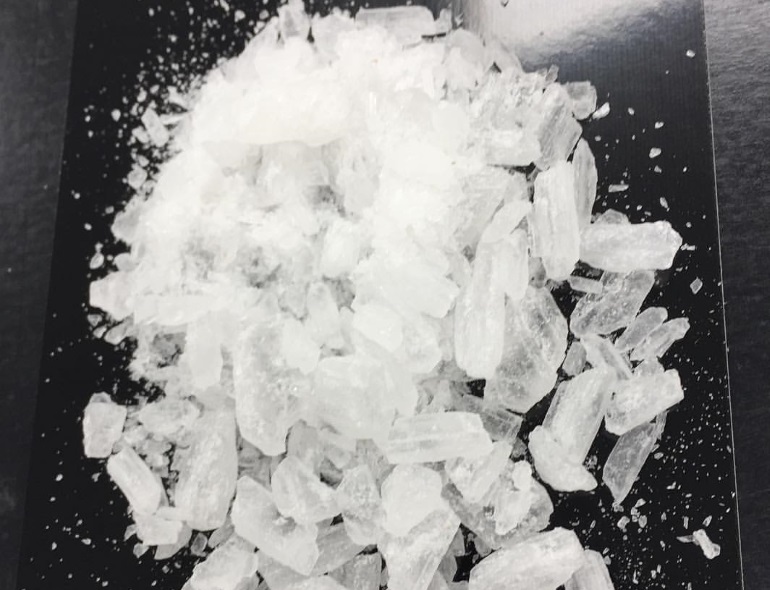
The illicit form of methamphetamine is commonly known as crystal meth, which comes in the form of crystalline powder or chunks that resemble ice, glass, or shards. Methamphetamine is usually smoked, snorted, injected, or swallowed.
Chemical Composition
Chemically, methamphetamine is similar to amphetamine, a drug used to treat ADHD and narcolepsy, but methamphetamine is much stronger and more potent. The chemical structure of methamphetamine allows it to affect the dopamine system in the brain more effectively, leading to a more intense and longer-lasting effect.
How Does Methamphetamine Affect the Brain and Body?
When methamphetamine is used, it triggers the release of dopamine, a neurotransmitter associated with pleasure, reward, and motivation. The intense feelings of euphoria and increased energy that result are a major reason why meth is so addictive.
Effects on the Brain
- Euphoria: Meth causes an intense “rush” or “high” due to a surge in dopamine.
- Increased Focus and Alertness: Users may experience heightened alertness and concentration, but these effects are often followed by agitation and paranoia.
- Mood Swings: The highs from methamphetamine can be followed by depression, anxiety, and irritability.
- Cognitive Impairment: Chronic use can lead to long-term cognitive decline, including memory loss and difficulty concentrating.
Effects on the Body
Increased Heart Rate and Blood Pressure: Meth stimulates the heart, which can lead to heart attacks, strokes, and other cardiovascular problems.
Hyperthermia: Users may experience dangerously high body temperatures, leading to organ failure in extreme cases.
Appetite Suppression: Meth can lead to severe weight loss, as it suppresses appetite.
Tooth Decay: Long-term use of methamphetamine is associated with “meth mouth”, a condition that causes severe dental decay and tooth loss.
Skin Issues: Users may develop sores, acne, or skin picking, often referred to as methamphetamine-induced psychosis.
Short-Term and Long-Term Effects of Methamphetamine
Short-Term Effects
- Intense Euphoria
- Increased energy, focus, and alertness
- Hyperactivity
- Decreased appetite
- Insomnia
- Rapid breathing and increased body temperature
Long-Term Effects
- Severe weight loss
- Addiction and dependence
- Memory loss and cognitive impairments
- Mental health issues like anxiety, paranoia, and psychosis
- Severe dental decay (“meth mouth”)
- Organ damage, including liver and kidney failure
- Heart damage, increased risk of stroke and heart attack
- Compromised immune system, leading to increased susceptibility to infections
The Risk of Addiction and Dependence
One of the most alarming aspects of methamphetamine use is its high potential for addiction. The intense high that users experience is followed by a crash — a period of depression, fatigue, and cravings — which often leads to the cycle of abuse. Over time, the body becomes dependent on meth to produce dopamine, leading to a tolerance to the drug. This means that users need higher doses to achieve the same effects, which increases the risk of overdose.
Signs of Methamphetamine Addiction
- Compulsive use despite negative consequences
- Behavioral changes such as irritability, aggression, and mood swings
- Physical symptoms like rapid weight loss, skin sores, and poor hygiene
- Neglect of personal responsibilities (work, family, etc.)
- Paranoia, hallucinations, and erratic behavior
- Secretive behavior or hiding drug use
How to Recognize Methamphetamine Overdose
Methamphetamine overdose is a serious medical emergency that requires immediate attention. An overdose can lead to seizures, heart attack, stroke, and death.
Signs of Overdose
- Chest pain or tightness
- Severe agitation and confusion
- Increased heart rate or irregular heartbeat
- Difficulty breathing
- Severe nausea or vomiting
- Seizures
- Loss of consciousness
If you suspect someone is experiencing a methamphetamine overdose, seek emergency medical help immediately.
Treatment for Methamphetamine Addiction
Overcoming methamphetamine addiction is a long and challenging process, but it is possible with the right support and treatment. Methamphetamine addiction often requires a combination of medical intervention, therapy, and support from family and friends.
Treatment Options
Detoxification: The first step in treatment is usually detoxification, which helps the body remove methamphetamine. Medical supervision may be necessary to manage withdrawal symptoms, including anxiety, fatigue, and intense cravings.
Behavioral Therapy: Cognitive-behavioral therapy (CBT) is commonly used to help individuals change their thinking patterns and behaviors associated with drug use. Therapy helps address the psychological aspects of addiction.
Support Groups: Joining a support group such as Narcotics Anonymous (NA) can help individuals build a supportive network of others in recovery.
Medication: While there are no FDA-approved medications specifically for methamphetamine addiction, certain medications may be prescribed to manage withdrawal symptoms or underlying mental health conditions like depression or anxiety.
Recovery and Rehabilitation
Recovery from methamphetamine addiction is a lifelong process that involves relapse prevention, ongoing therapy, and healthy lifestyle changes. Many individuals find success through structured rehabilitation programs and by surrounding themselves with supportive people who encourage their recovery journey.
Conclusion
Methamphetamine is a powerful and addictive drug that can have devastating effects on the brain and body. Its potential for abuse and dangerous long-term consequences make it one of the most harmful substances. However, recovery is possible with the right treatment and support. If you or someone you know is struggling with methamphetamine addiction, seeking help early is crucial to preventing further damage.WE HAVE OTHER RELATED PRODUCT CATEGORY SUCH AS PILLS, PSYCHEDELIC AND RESEARCH CHEMICALS
If you’re looking for support or more information about methamphetamine addiction, don’t hesitate to reach out to a healthcare professional or addiction specialist who can provide guidance and help you on the road to recovery.
can you snort meth
pink meth
Pink meth is a slang term that refers to a pink-colored version of methamphetamine, particularly crystal meth. The color of methamphetamine can vary depending on the chemicals used during its production. The term “pink meth” specifically describes methamphetamine that has a distinct pink hue, which can sometimes be a result of additives or impurities introduced during its illegal synthesis.
What Causes Meth to Turn Pink?
The color of methamphetamine is influenced by the chemical substances used in its production. When methamphetamine is illegally manufactured, different chemicals and precursors are involved. These chemicals may have different color properties, and when they react during the manufacturing process, the resulting meth can take on a pinkish, purple, or reddish tint.
In some cases, the pink color may come from dye or contaminants added to the meth, often to make it appear more appealing or distinguish it from other batches. However, the color itself does not necessarily indicate any difference in potency or purity. The presence of dyes or impurities may affect the health risks and effectiveness of the drug, but the color alone is not a reliable indicator of the meth’s quality or strength.
Is Pink Meth More Dangerous?
Regardless of its color, methamphetamine is extremely dangerous and highly addictive. Pink meth carries the same health risks as regular crystal meth, which include:
- Addiction: Methamphetamine is a highly addictive stimulant, leading to dependence and addiction.
- Mental Health Problems: Prolonged use can result in anxiety, paranoia, hallucinations, and violent behavior.
- Physical Health Issues: Long-term meth use can cause damage to the cardiovascular system, liver, kidneys, and brain. It also results in the infamous condition known as meth mouth, characterized by severe dental decay and tooth loss.
- Risk of Overdose: All forms of methamphetamine, including pink meth, carry a risk of overdose, which can lead to stroke, heart attack, or death.
Legal Status
Methamphetamine is classified as a Schedule II controlled substance in many countries, including the United States, which means it is illegal to manufacture, distribute, or possess the drug without a prescription. Methamphetamine is a dangerous substance with no legal recreational use.
Conclusion
While the color of methamphetamine (including pink meth) may vary, it doesn’t change the fact that the drug is highly dangerous and illegal. If you or someone you know is using meth, it is crucial to seek help immediately, as methamphetamine addiction has serious health consequences. Support is available through rehabilitation programs, therapy, and support groups to help individuals overcome addiction and regain control of their lives.
If you’re concerned about the use of methamphetamine, don’t hesitate to reach out to a healthcare professional for guidance and assistance.
The Global Impact of Methamphetamine Abuse
Prevalence of Methamphetamine Use
Methamphetamine is a global problem, with its use on the rise in many countries. In the United States, methamphetamine abuse has been a public health crisis for years, with reports indicating that around 2 million people in the U.S. have used meth at some point in their lives. Other regions, including Asia and Australia, also face increasing challenges related to methamphetamine abuse.buying meth
In many developing countries, meth is often referred to as “crystal meth” or “ice” due to its appearance. It’s often trafficked across borders, making it a significant concern for both local communities and law enforcement.buying meth
Methamphetamine and Its Impact on Families and Communities
The consequences of methamphetamine use stretch beyond the individual, affecting families, friends, and entire communities. Families of meth users often face emotional, financial, and legal difficulties due to their loved ones’ addiction. The intense and erratic behavior associated with meth use, including violence, neglect, and parental instability, can lead to children being placed in foster care or growing up in unsafe environments.
The social consequences of methamphetamine abuse also extend to workplaces and communities. For example, people addicted to meth are more likely to experience issues at work, such as absenteeism, impaired performance, and unsafe behaviors. In addition, the criminal activity related to meth distribution and manufacturing can contribute to community instability and violence.
Economic Costs of Methamphetamine Abuse
Methamphetamine addiction imposes an enormous economic burden on society. The cost of treating meth addiction, responding to meth-related crimes, and addressing health problems linked to methamphetamine use is staggering. In the U.S. alone, the economic costs of methamphetamine abuse exceed $20 billion annually, considering healthcare expenses, lost productivity, and criminal justice costs.
In addition to the direct costs, there are long-term health consequences that result in ongoing healthcare needs for individuals with a history of methamphetamine addiction. These individuals may face chronic cardiovascular issues, mental health disorders, and organ damage, requiring ongoing medical care.
What Are the Legal Implications of Methamphetamine Possession and Distribution?
Methamphetamine is classified as a Schedule II controlled substance in most countries, including the United States. This means that possession, distribution, and production of methamphetamine are illegal, except for certain medical uses under strict medical supervision. In countries where methamphetamine production and distribution are rampant, law enforcement agencies work tirelessly to track and dismantle meth labs and disrupt illegal drug trade operations.buying meth
Penalties for Methamphetamine Possession and Distribution
Possessing methamphetamine, even in small amounts, can result in severe legal consequences, including imprisonment, fines, and a permanent criminal record. Those caught trafficking or manufacturing methamphetamine may face much harsher penalties, including long prison sentences.
The law enforcement community continues to combat methamphetamine-related crimes, but the persistence of the drug’s popularity and the availability of meth production recipes on the internet make it challenging to fully eradicate methamphetamine use.buying meth
Prevention and Education: How to Combat Methamphetamine Abuse
Education Programs for At-Risk Populations
Prevention and education are critical in reducing methamphetamine abuse. Schools, community organizations, and local governments often provide educational programs aimed at raising awareness about the dangers of methamphetamine use, its potential for addiction, and its devastating health effects.
Educating youth and vulnerable populations about the dangers of meth use can help reduce experimentation with the drug and encourage early intervention for those at risk. Prevention programs often incorporate real-life stories, facts about the drug, and resources for support to deter future use.
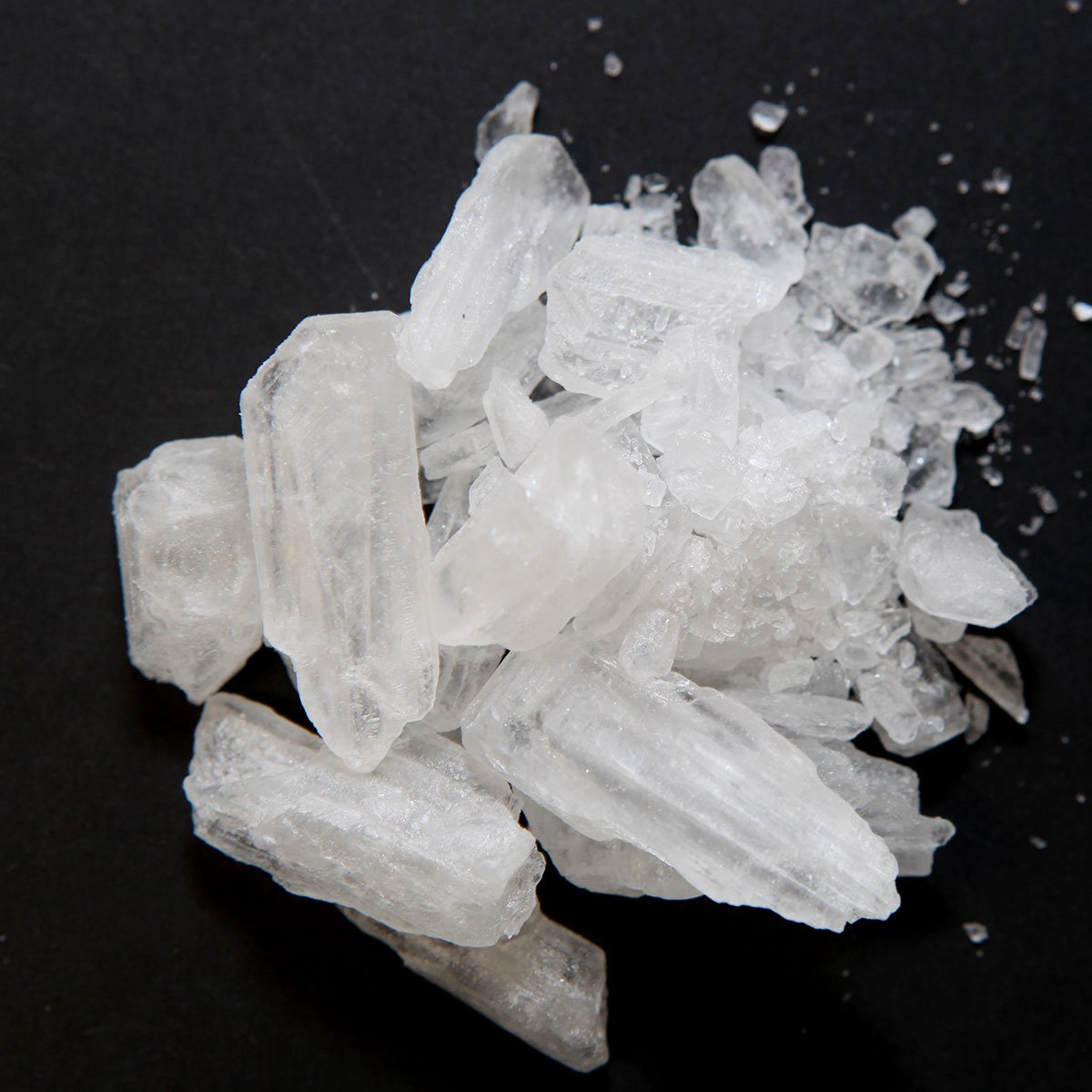
Harm Reduction Strategies
Some regions also employ harm reduction strategies, such as providing access to clean syringes for individuals who inject meth, as a way to reduce the transmission of bloodborne diseases like HIV and hepatitis. While harm reduction does not address the underlying addiction, it helps to mitigate the worst health consequences of meth use.buying meth
In addition, needle exchange programs and supervised injection sites are being explored in some areas as means to reduce the risk of overdose and provide users with access to healthcare resources.
Methamphetamine and Mental Health: The Psychological Toll
Mental Health Disorders Associated with Methamphetamine Use
One of the most significant consequences of long-term methamphetamine use is its impact on mental health. Methamphetamine can exacerbate or even cause serious psychiatric disorders such as anxiety, paranoia, aggressive behavior, and psychosis. The drug causes the brain to release an excess of dopamine, which may lead to severe mood swings and distorted thinking.buying meth
Methamphetamine-induced psychosis is a serious mental health condition that can cause hallucinations, delusions, and a detachment from reality. In some cases, these psychotic episodes can persist even after the drug has worn off, and can be difficult to treat without professional intervention.
Over time, methamphetamine abuse can also contribute to depression and suicidal ideation, particularly after the euphoric effects of the drug wear off and the user enters a period of intense crash and withdrawal.buying meth

The Importance of Addressing Co-occurring Disorders
Many individuals with methamphetamine addiction also experience co-occurring mental health disorders such as depression, bipolar disorder, or schizophrenia. Treating these disorders alongside addiction is essential for successful recovery. Integrated treatment approaches, which address both substance use and mental health, are often the most effective for individuals with dual diagnosis.
Conclusion: Understanding and Combating Methamphetamine Abuse
Methamphetamine is a dangerous drug that can wreak havoc on the brain, body, and mind. Its potential for addiction and the devastating impact on mental health make it one of the most harmful substances in the world. The good news is that recovery is possible. With proper treatment, including detoxification, behavioral therapy, and support groups, individuals can regain control of their lives and break free from the grip of addiction.buying meth
The key to combating methamphetamine abuse is prevention, education, and early intervention. By raising awareness, providing resources for treatment, and addressing the root causes of addiction, we can work together to reduce the impact of this devastating drug on individuals and communities around the world.buying meth
If you or someone you know is struggling with methamphetamine addiction, it’s never too late to seek help. Contact a mental health professional, treatment center, or support group today to begin the journey to recovery.buying meth
FAQ About Methamphetamine
1. What is Methamphetamine?
Methamphetamine is a highly addictive stimulant drug that affects the central nervous system. It increases dopamine levels in the brain, leading to feelings of euphoria, increased energy, and heightened focus. Methamphetamine is typically sold in the form of crystal meth or powder and can be smoked, snorted, swallowed, or injected.buying meth
2. What are the symptoms of methamphetamine use?
Common symptoms of methamphetamine use include increased energy, alertness, and euphoria. However, it can also cause dangerous side effects such as rapid heart rate, high blood pressure, anxiety, paranoia, aggressive behavior, hallucinations, and severe weight loss. Chronic use can lead to mental health issues, including psychosis.buying meth
3. How does methamphetamine affect the brain?
Methamphetamine significantly boosts dopamine release in the brain, leading to intense feelings of pleasure and reward. Over time, this disrupts the brain’s ability to produce dopamine naturally, leading to addiction. Methamphetamine use can also damage brain cells, leading to long-term cognitive and emotional problems.
4. What are the risks of methamphetamine addiction?
Methamphetamine addiction can have serious long-term consequences, including mental health disorders (such as anxiety, depression, and psychosis), cardiovascular problems (such as heart attack or stroke), severe dental decay (meth mouth), skin issues, and brain damage. It is highly addictive and can lead to overdose and death.buying meth
5. How is methamphetamine treated?
Treatment for methamphetamine addiction typically involves detoxification to rid the body of the drug, followed by behavioral therapy (such as cognitive-behavioral therapy) and support groups like Narcotics Anonymous (NA). There are no FDA-approved medications for meth addiction, but therapy can help individuals address the psychological aspects of their addiction.buying meth
6. Is methamphetamine legal?
Methamphetamine is classified as a Schedule II controlled substance in many countries, including the U.S., meaning it is illegal to possess, distribute, or manufacture without a prescription. It is sometimes used in medical settings for the treatment of ADHD and obesity, but recreational use is illegal and highly dangerous.buying meth
People Also Ask (PAA) About Methamphetamine
1. What does methamphetamine do to your body?
Methamphetamine increases the release of dopamine in the brain, leading to intense euphoria, energy, and increased alertness. Over time, it can damage the heart, brain, liver, and kidneys. It also suppresses appetite, causes rapid weight loss, and can lead to severe dental decay, known as “meth mouth.”buying meth
2. Can you overdose on methamphetamine?
Yes, methamphetamine overdose is a serious medical emergency. Symptoms of overdose include chest pain, rapid heartbeat, seizures, confusion, agitation, and loss of consciousness. Meth overdose can lead to heart attack, stroke, and death. Immediate medical attention is necessary if an overdose is suspected.
3. How long does methamphetamine stay in your system?
Methamphetamine can stay in the body for several days. It is detectable in urine for 2-5 days, in blood for 1-3 days, and in hair for up to 90 days. The exact time varies based on factors like frequency of use, metabolism, and overall health.buying meth
4. How does meth addiction affect mental health?
Methamphetamine addiction has significant effects on mental health, causing issues like anxiety, paranoia, hallucinations, aggression, and violent behavior. Long-term use can also lead to memory loss, cognitive impairments, and methamphetamine-induced psychosis.buying meth
5. Can methamphetamine addiction be treated?
Yes, methamphetamine addiction can be treated through a combination of detoxification, behavioral therapies, and support groups. While there are no specific medications for meth addiction, therapy is highly effective in addressing the behavioral and psychological aspects of addiction.buying meth
Related Searches for Methamphetamine
1.Methamphetamine overdose treatment
If you or someone you know is experiencing a methamphetamine overdose, immediate medical intervention is necessary. Treatment may include IV fluids, anticonvulsant medications for seizures, and other emergency care to stabilize heart rate and blood pressure.buying meth
2.Methamphetamine withdrawal symptoms
Methamphetamine withdrawal can include fatigue, depression, intense cravings, increased appetite, anxiety, and difficulty sleeping. Professional treatment and therapy are recommended to manage withdrawal safely.buying meth
3.Crystal meth addiction recovery
Recovery from crystal meth addiction often requires detoxification, followed by counseling and rehabilitation. Support from loved ones and participation in groups like Narcotics Anonymous (NA) are also important components of recovery.buying meth
4.Methamphetamine effects on mental health
Chronic use of methamphetamine can lead to severe mental health issues such as anxiety, depression, paranoia, and psychosis. Long-term use can cause lasting cognitive impairments and emotional difficulties, even after the drug is no longer in the system.buying meth
5.How long does methamphetamine high last?
The methamphetamine high typically lasts for several hours, with the peak effects occurring within the first 30-60 minutes after use. After the initial high, users often experience a “crash,” which can lead to feelings of fatigue, depression, and intense cravings for more of the drug.buying meth
6.Effects of meth on the teeth
One of the most visible effects of methamphetamine use is severe dental decay, known as meth mouth. The drug reduces saliva production, leading to dry mouth, which in turn causes tooth decay, gum disease, and tooth loss.buying meth
Conclusion
Methamphetamine is a highly addictive drug that can cause severe damage to both the brain and body. The short-term effects may seem exhilarating, but they come with long-term risks, including mental health disorders, physical health problems, and the potential for overdose.buying meth
If you or someone you know is struggling with methamphetamine addiction, professional treatment and support networks are key to recovery. Understanding the dangers of methamphetamine, its effects, and the signs of addiction can help you make informed decisions and seek the help you need.
For more information on methamphetamine treatment or to find a support group near you, please reach out to a healthcare professional.buying meth
Buy Methamphetamine (MDMA) Online
Exploring the realm of Methamphetamine (MDMA) opens the doors to understanding a substance that has sparked debates and curiosity alike. In this article, we delve into the various facets of MDMA, shedding light on its effects, risks, and societal implications. Buy Methamphetamine (MDMA) Online.
Understanding Methamphetamine (MDMA)
Methamphetamine, commonly known as MDMA or ecstasy, is a synthetic drug that alters mood and perception. Originally developed as a potential medication to assist in psychotherapy, it gained popularity in recreational settings due to its euphoric effects.buying meth
Methamphetamine is often consumed orally in the form of tablets or capsules. It stimulates the release of serotonin, dopamine, and norepinephrine in the brain, leading to heightened sensations of pleasure and increased energy levels.buying meth
The Rise of Methamphetamine (MDMA) Culture
The emergence of Methamphetamine (MDMA) culture is a testament to its widespread use in recreational settings, particularly in parties and music festivals. Its reputation for inducing feelings of euphoria, empathy, and heightened sensory perception has contributed to its popularity among certain demographics.
Effects of Methamphetamine (MDMA) on the Body
The consumption of Methamphetamine (MDMA) can lead to various physiological effects, including increased heart rate, elevated body temperature, and heightened sensory perception. Users may also experience enhanced empathy and emotional openness.buying meth
Understanding the Risks Associated with Methamphetamine (MDMA)
While Methamphetamine (MDMA) may induce pleasurable effects, it also poses significant risks to physical and mental health. Prolonged use can lead to dehydration, hyperthermia, and even organ failure. Additionally, MDMA can have adverse effects on mood and cognitive function.buying meth
Navigating the Legal Landscape of Methamphetamine (MDMA)
The legal status of Methamphetamine (MDMA) varies from country to country. While some jurisdictions have classified it as a controlled substance due to its potential for abuse and dependence, others have adopted more lenient regulations, allowing for limited medical or therapeutic use.buying meth
Recognizing the Signs of Methamphetamine (MDMA) Abuse
Identifying the signs of Methamphetamine (MDMA) abuse is crucial for early intervention and support. Common indicators include changes in behavior, social withdrawal, and neglect of responsibilities. Individuals struggling with MDMA addiction may also exhibit physical symptoms such as weight loss and insomnia.buying meth
Seeking Help for Methamphetamine (MDMA) Addiction
Addressing Methamphetamine (MDMA) addiction requires a comprehensive approach that encompasses medical, psychological, and social interventions. Seeking professional help from healthcare providers, therapists, and support groups can facilitate recovery and promote long-term sobriety.buying meth
The Role of Harm Reduction Strategies in MDMA Use
Harm reduction strategies aim to minimize the negative consequences associated with Methamphetamine (MDMA) use while acknowledging the realities of drug consumption. These may include education initiatives, drug testing services, and access to clean needles and syringes.buying meth
Exploring the Future of Methamphetamine (MDMA) Research
Ongoing research into the therapeutic potential of Methamphetamine (MDMA) has yielded promising results in the treatment of various mental health conditions, including post-traumatic stress disorder (PTSD) and depression. As scientific understanding continues to evolve, MDMA may play a role in innovative treatment modalities.buying meth
Dispelling Common Myths About Methamphetamine (MDMA)
There are numerous misconceptions surrounding Methamphetamine (MDMA), ranging from its perceived safety to its addictive potential. We can foster informed decision-making and promote responsible drug use by debunking these myths and providing accurate information.buying meth
FAQs About Methamphetamine (MDMA)
Q: Is Methamphetamine (MDMA) addictive?
A: Yes, Methamphetamine (MDMA) can be addictive due to its effects on neurotransmitter systems in the brain, particularly dopamine.buying meth
Q: What are the short-term effects of Methamphetamine (MDMA)?
A: Short-term effects of Methamphetamine (MDMA) include increased energy, euphoria, heightened sensory perception, and enhanced empathy.buying meth
Q: Can Methamphetamine (MDMA) be used as a therapeutic agent?
A: Research suggests that Methamphetamine (MDMA) may have therapeutic potential in the treatment of certain mental health conditions, although further studies are needed to establish its efficacy and safety.
Q: What are the long-term consequences of Methamphetamine (MDMA) use?
A: Long-term Methamphetamine (MDMA) use can lead to adverse effects on physical and mental health, including dehydration, hyperthermia, cognitive impairment, and mood disorders.buying meth
Q: How can I help someone struggling with Methamphetamine (MDMA) addiction?
A: Supporting someone with Methamphetamine (MDMA) addiction involves offering non-judgmental assistance, encouraging them to seek professional help, and providing emotional support throughout their recovery journey.buying meth
Q: Are there any legal implications associated with Methamphetamine (MDMA) possession or distribution?
A: Possession and distribution of Methamphetamine (MDMA) are illegal in many jurisdictions and may result in severe legal consequences, including fines and imprisonment.buying meth
Conclusion
In conclusion, Methamphetamine (MDMA) remains a complex substance with multifaceted effects and implications. By fostering informed discussions and promoting harm reduction strategies, we can mitigate the risks associated with MDMA use and support individuals in making responsible choices.buying meth


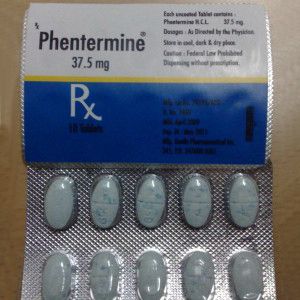
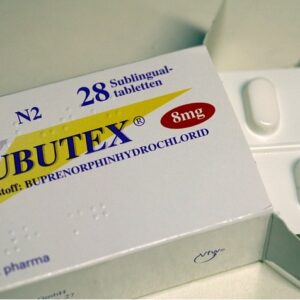
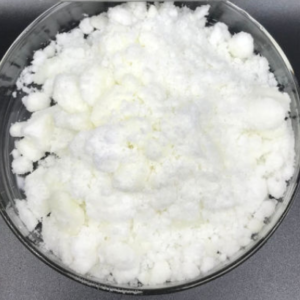




Reviews
There are no reviews yet.